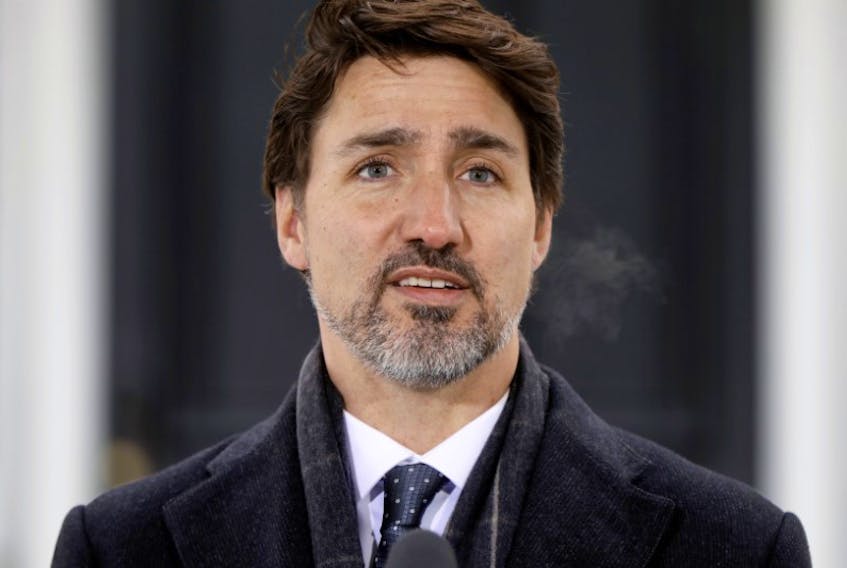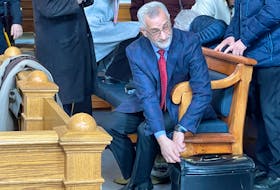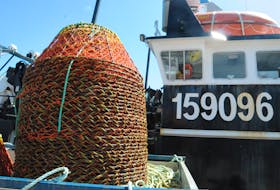Canada’s land border with the U.S. is expected to close as early as Friday night.
The mutual decision to shut down the border between the two countries to all non-essential travel was announced on Wednesday, several days after the federal government announced it would no longer permit anyone who is not a Canadian citizen or permanent resident to enter Canada. At the time, the U.S. was the only exception.
Addressing the media on Thursday, Prime Minister Justin Trudeau said the agreement between the U.S. and Canada is still being fine-tuned, but the measures would probably come into place overnight between Friday and Saturday.
Essential border crossings, such as for the supply of goods like food and medicine, will not be restricted, and Canadians who are not currently presenting symptoms of COVID-19 will continue to be able to return home.
Deputy Prime Minister Chrystia Freeland said even before the formal shutdown, both countries are still advising against non-essential travel.
“People should not be travelling between the U.S. and Canada to be a tourist or for recreational purposes,” she said.
Also on Thursday, the government addressed how it would handle asylum seekers to Canada, such as those arriving at Quebec's unofficial Roxham Road border crossing.
Freeland said after consulting with premiers, including Quebec Premier François Legault, the government has decided to, as of Friday, detain and temporarily house all asylum seekers to ensure they are quarantined for 14 days as directed by Canada’s public-health officials.
Supply crunch

As Canadians watch the reality of a global pandemic unfold in countries like Italy and Iran, where outbreaks are causing massive shortages in hospitals, ministers faced questions about the state of medical resources — particularly ventilators — in Canada.

Health Minister Patty Hajdu said it’s impossible to predict what will be needed in Canada, as it greatly depends on how Canadians conduct themselves in the coming weeks and what the trajectory of the coronavirus looks like.
Chief public health officer Dr. Theresa Tam said there have been no specific requests from provinces for ventilators.
“What we are doing at the federal level is actually just to pre-empt that by acquiring some should provinces and territories need it,” Tam said.
Hajdu said there are also mechanisms whereby provinces can share resources — for example, if one region is hit much harder by COVID-19 than another.
Trudeau said the government is looking at military procurement options for medical supplies and equipment, and how the procurement industry can assist efforts to treat and control COVID-19.
Freeland said procurement minister Anita Anand would discuss some of these options at a cabinet meeting scheduled for Thursday afternoon.
“This is an area that we are very urgently focused on and we are looking at every single option … so we are able to manage surges across the country, and looking at what the military can do … to contribute to that effort is very much a part of it,” she said.
In light of the unprecedented demand for products that can help limit the spread of COVID-19 — including hand sanitizers, disinfectants and personal protective equipment like as masks and gowns, as well as swabs for testing — Health Canada announced it is expediting access to products that may not fully meet current regulations as an interim measure. This includes products that are already authorized for sale in Canada but are not fully compliant with Health Canada requirements, such as English-only labelling or packaging that has not been authorized, or products that are not authorized for sale in Canada but are authorized or registered in other jurisdictions with similar regulatory frameworks and quality assurances.
The federal government has also approved two new diagnostic tests for COVID-19 that will enable provincial labs to test more swiftly.
‘Weeks to months’ of social distancing

Trudeau, who is still under isolation while his wife recovers from COVID-19, said the social-distancing measures that have been implemented across Canada could be in place for weeks or months.
“We're going to continue to follow the best recommendations of experts,” he said.
Tam said that because cases of exposure from one to two weeks ago are only now being identified, based on the coronavirus’s incubation period, the next two weeks will be crucial in identifying what happens to that curve.
She said she continues to be concerned about the sharp day-by-day increase in cases and reports of community spread.
Tam noted it took countries like China and South Korea about 2 1/2 months to get major outbreaks under control.
She also spoke about the importance of ensuring vulnerable communities are fully supported.
“We know COVID-19 can affect any community anywhere in Canada. However, we must recognize that First Nations, Inuit and Metis are at higher risk of severe outcomes for COVID-19 given health inequities, higher rates of underlying medical conditions and unique health challenges such as those faced by remote and fly in-fly out communities,” she said.
As part of the $27-billion aid package announced Wednesday, which includes support for low-income families and those not covered by employment insurance, the federal government included $305 million for a new distinctions-based Indigenous Community Support Fund to address immediate needs in Indigenous, Inuit and Métis communities.
As of Thursday afternoon, there were more than 230,000 cases of COVID-19 identified in 177 countries, including 772 cases and 9 deaths in Canada.
Tam said Canada has tested 55,000 people for the coronavirus, 10,000 of them between Wednesday and Thursday.









